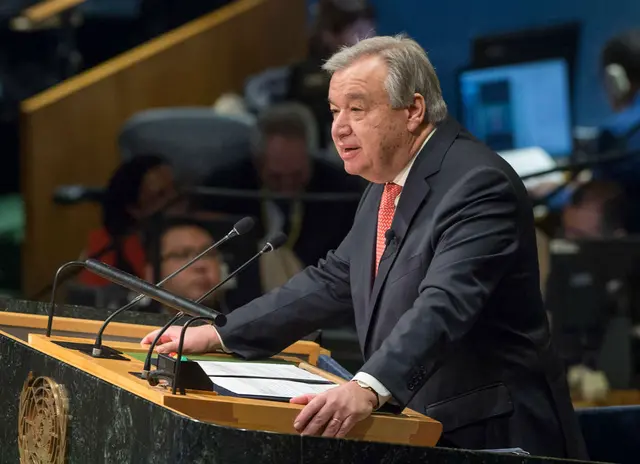The Israeli government is stepping up its efforts to crack down on Jewish extremists who have been suspected of staging a string of violent attacks on civilian and religious sites over the past years.
The move was prompted by an arson attack on Friday, in which suspected Israeli ultra-nationalists set fire to the Dawabshe family home in the West Bank village of Duma, killing 18-month-old Ali Saad and critically wounding his parents and brother.
"JEWISH TERRORISM"
On Monday, Israel's Shin Bet security service and the police arrested Meir Ettinger, a rightwing Jewish extremist, in the first arrest made since the arson attack. He was arrested because of "his involvement in a Jewish extremist organization," the Shin Bet said in a statement sent to Xinhua.
Ettinger, a 24-year-old settler, is the Shin Bet's most wanted Jewish militant suspect, but it remains to be seen if and how he was involved in the attack.
He is the grandson of the late American-Israeli Rabbi Meir Kahane, founder of the ultranationalist Kach party, which was outlawed in 1988 after serving for four years in the parliament, for being racist and anti-democratic.
The Shin Bet has long suspected that Ettinger has been escalating his activists over the past year, planning "serious acts of violence" against Palestinians and possibly leading the group that set fire to the Church of Multiplication of the Loaves and Fish in the Galilee in northern Israel in June.
Israeli media reported that if Ettinger will not cooperate during his investigation, he could face "administrative detention" subject to the approval of a judge, which means he could be held indefinitely without charges brought against him.
Administrative detentions have been so far reserved for Palestinian suspects only. However, the security cabinet on Sunday decided to apply the measure also on "Jewish terror" suspects, in cases where not enough evidence are available to press charges or if the suspect refuses to testify.
INTERNATIONAL AND DOMESTIC PRESSURES
The move came amidst international pressure on Israeli Prime Minister Benjamin Netanyahu's cabinet to crack down on Israeli perpetrators of hate crimes, following Friday's arson attack.
The U.N. Security Council condemned Friday "the vicious terrorist attack," demanding Israel to bring the perpetrators to justice.
On Monday, the Palestinians submitted the case of the attack to the International Criminal Court in The Hague, Reyad al-Malki, the Palestinian Minister of Foreign Affairs in the Palestinian National Authority (PNA), told Xinhua.
They also filed some facts about previous "Israeli settlement terrorist actions committed against the Palestinian people," al-Malki added.
"LAX" ENFORCEMENT
Meanwhile, the police has opened an investigation into threats on Israeli President Reuven Rivlin's life after he condemned the attack. Rivlin said he felt "shamed" that the killers of Ali Saad Dawabshe came from "my own people."
He also criticized the Israeli security forces for their "lax" enforcement of the law against Jewish perpetrators' the so-called "price tag" attacks that aim to exact retribution for moves curbing the expansion of Jewish settlements by attacking Palestinians and vandalizing Palestinian property as well as Muslim and Christian holy sites.
In response to his statement, the president received messages on his official Facebook page calling him a "traitor," with one comment hoping Rivlin would receive "an end worse than Ariel Sharon" (the former Prime Minister who suffered a stroke in 2006 and died in 2014).
Another commenter called the president "a bloody loser," adding that he "prays another 'Yigal Amir' will rise to cleanse you and the Arabs from our Jewish country."
Yigal Amir is the convicted assassin of late Prime Minister Yitzhak Rabin, killed in 1995 for leading peace negotiations with the Palestinians.
Despite officials' public statements of "cracking down" on attackers, according to Israeli human rights group Yesh Din, Israelis who attack Palestinians are rarely persecuted, with 85 percent of the cases being closed amid failure to find suspects and insufficient evidence, according to a report released by the group in May.
Furthermore, only 7.4 percent of investigations yielded indictments.
According to the monitoring of 57 cases in which Yesh Din represented Palestinian victims and legal proceedings have concluded, only about 33 percent of the cases ended with full or partial conviction, compared with more than 90 percent conviction rate in the general population.
Some additional 25 percent were found "guilty without conviction," a ruling that the defendant was found guilty but no conviction is entered in his records to spare him the implication of a criminal conviction.
This ruling is usually reserved to juvenile and first-time offenders, but most settler defendants were not minors at the time of the offence, the report showed.
"It shows that the Israeli law enforcement authorities refer to these cases with a wink," executive director of Yesh Din, Neta Patrick, told Xinhua. "The offenders are considered as 'weeds' and not as perpetrators of serious criminal activity that should be eradicated."
According to an article in Israel's Ha'aretz newspaper, the Shin Bet believes that groups of radical settler militants - that might include dozens to hundreds of activists - now wish to go beyond the "price tag" attacks, to a messianic mission to overthrow the government and establish a new regime based on the Jewish religious law.
The Shin Bet describes their world view as "anarchist, anti-Zionist," Ha'aretz reported. Their aim is to destabilize the country and its democratic institutions in order to replace it with a theocracy of a new Israeli "kingdom." Enditem
 简体中文
简体中文

